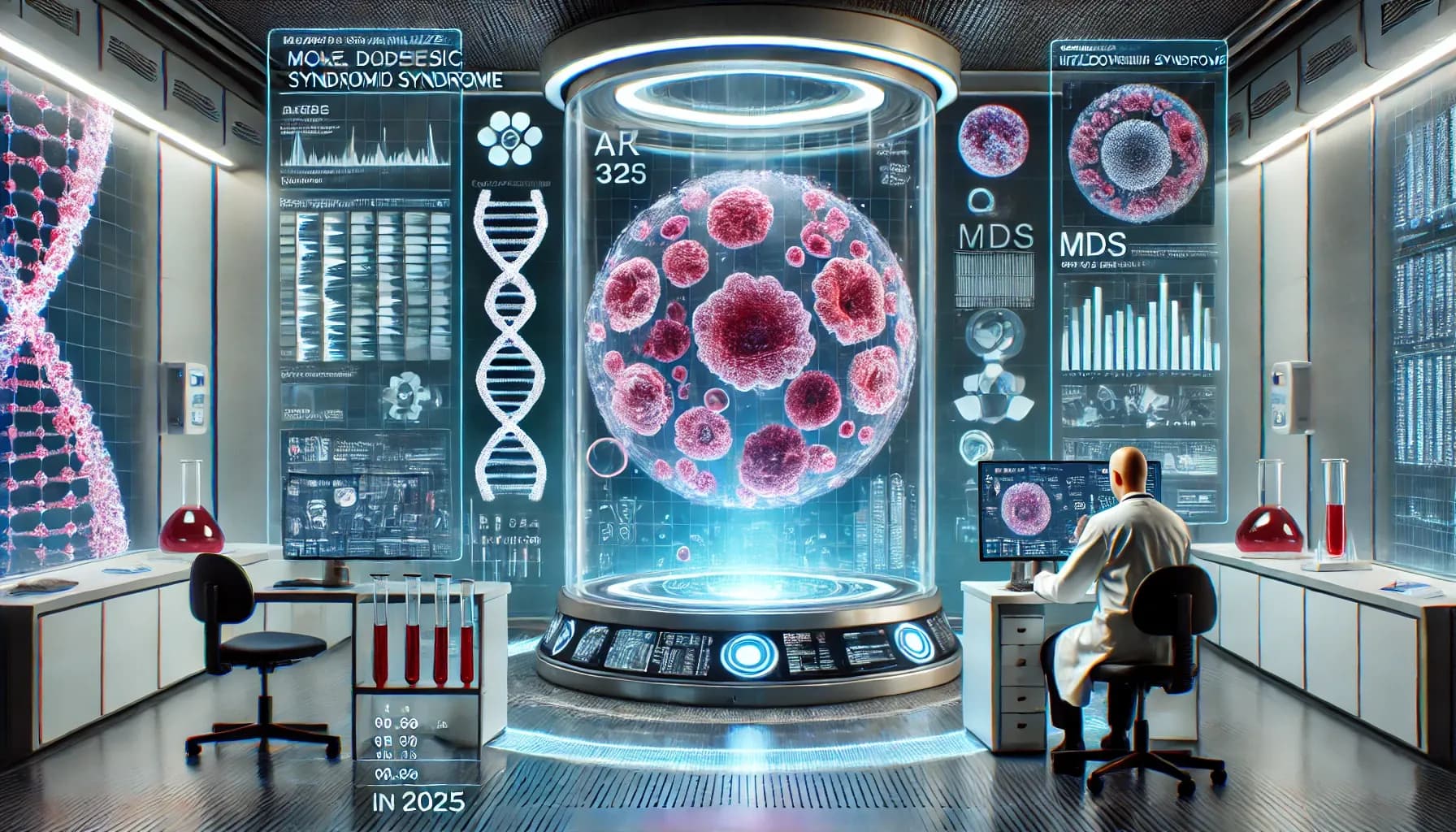Myelodysplastic Syndrome Treatment Just Changed Forever In 2025 — Here Are 7 Breakthroughs!
Myelodysplastic syndrome (MDS), a group of disorders that affect the bone marrow and blood cell production, has long been challenging to treat. However, 2025 marks a major turning point, with revolutionary advancements making treatments safer, more effective, and highly personalized. Here are seven groundbreaking breakthroughs that are transforming MDS treatment forever.

1. AI-Powered Early Detection & Precision Medicine
Artificial intelligence (AI) is revolutionizing MDS diagnosis, detecting early signs of bone marrow failure faster and more accurately than traditional methods. AI is also creating personalized treatment plans based on a patient’s genetic profile, optimizing therapy effectiveness.
2. Next-Generation Targeted Therapies
New targeted therapies designed to treat specific genetic mutations linked to MDS are now available. These drugs, including next-generation BCL-2 inhibitors and immune checkpoint inhibitors, offer better outcomes with fewer side effects than traditional chemotherapy.
3. CRISPR-Based Gene Editing for MDS
CRISPR gene-editing technology is now being used to correct faulty bone marrow genes responsible for MDS. This breakthrough treatment has the potential to reverse the disease at its genetic source, reducing the need for repeated transfusions and aggressive treatments.
4. Advanced Stem Cell Transplantation Techniques
In 2025, stem cell transplants have become safer and more effective thanks to enhanced donor matching algorithms and improved immune system regulation. These advancements have dramatically lowered the risk of graft-versus-host disease (GVHD), making transplants a more viable option for MDS patients.
5. Personalized mRNA Cancer Vaccines
mRNA vaccine technology, which was instrumental in COVID-19 vaccines, is now being used to stimulate the immune system to fight MDS-related mutations. These personalized vaccines help the body recognize and attack abnormal blood cells, reducing relapse rates.
6. Non-Invasive Therapies for MDS Management
Innovative non-invasive treatments such as low-intensity immunotherapy and targeted radiotherapy are now helping patients manage MDS without the severe side effects of traditional treatments. These options provide better quality of life and longer remission periods.
7. AI-Driven Remote Monitoring & Digital Health Tools
AI-powered wearable devices and digital health platforms allow doctors to track blood counts, monitor treatment response, and detect early complications in real time. This remote monitoring system ensures faster intervention and better disease management.


